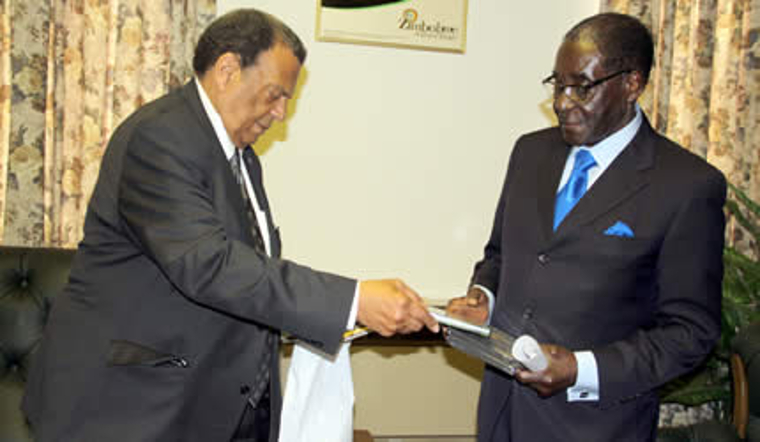The rhetoric conceals ZANU-PF’s own American ties. ZANU-PF’s American connections.
Historically, relations between the US and ZANU-PF have fluctuated. Mugabe formed a close bond with Andrew Young, the US ambassador to the UN during Jimmy Carter’s presidency. Carter’s government was the first to open an embassy in independent Zimbabwe.
Solid relations continued during the early years of the Reagan administration. Harare was one of the top three African recipients of US aid in the early 1980s.
US vice-president George H.W. Bush travelled to Harare in 1982. In 1997, first lady Hillary Clinton made a goodwill visit to Zimbabwe.
Ties were even deeper in the early 1960s when the US government encouraged the party’s very establishment. Historian Timothy Scarnecchia, who has mined records in the US national archives, has documented the ties that ZANU forged with American officials 60 years ago.
The organisation’s core leadership in temporary exile in Dar es Salaam, Tanzania (then Tanganyika), regularly consulted with US embassy officials in that country. Its leading representatives, including Mugabe, lobbied the US government for funding. (There is no evidence that the new party received any directly.)
ZANU’s first president, Ndabaningi Sithole, received theological education in the US in the late 1950s. Archival records show that on the eve of ZANU’s formation he met with State Department officials in Washington DC who connected him to private American funders. In another archived account of a meeting with the US ambassador in Tanganyika (now Tanzania) in July 1963, Leopold Takawira, subsequently ZANU’s first vice-president, relayed that Sithole regarded the US as his second home.
Herbert Chitepo, who became ZANU’s national chair, visited the US in July 1963 and also met with American diplomats. According to a record of their conversation in the US national archives, Chitepo expressed his desire to accept US funding and defied anyone to call him an American stooge.
The 11 July 1963 issue of Zimbabwe Today, a periodical produced by ZAPU in Tanzania, declared that following Sithole’s return from the US: “the American dollar and its ugly imperialist head is clearly visible in the actions of Mr. Sithole.”
ZANU-PF’s assaults on Chamisa and his party’s supposed American connections is a repackaging of the very attacks Mnangagwa’s party faced from ZAPU when it was formed 60 years ago.
Although it has not been well documented, the US provided critical support during ZANU’s founding in 1963. It also helped the party consolidate its authority following independence in 1980. Since the US government imposed sanctions on Zimbabwe in 2001, these ties have been overshadowed.
As elections approach in Zimbabwe, the role of the US looms large. ZANU-PF overlooks historical aspects of its own relations with the US as it seeks to undermine its domestic opposition and appeal to continental allies.
By Brooks Marmon for the Conversation
(138 VIEWS)


